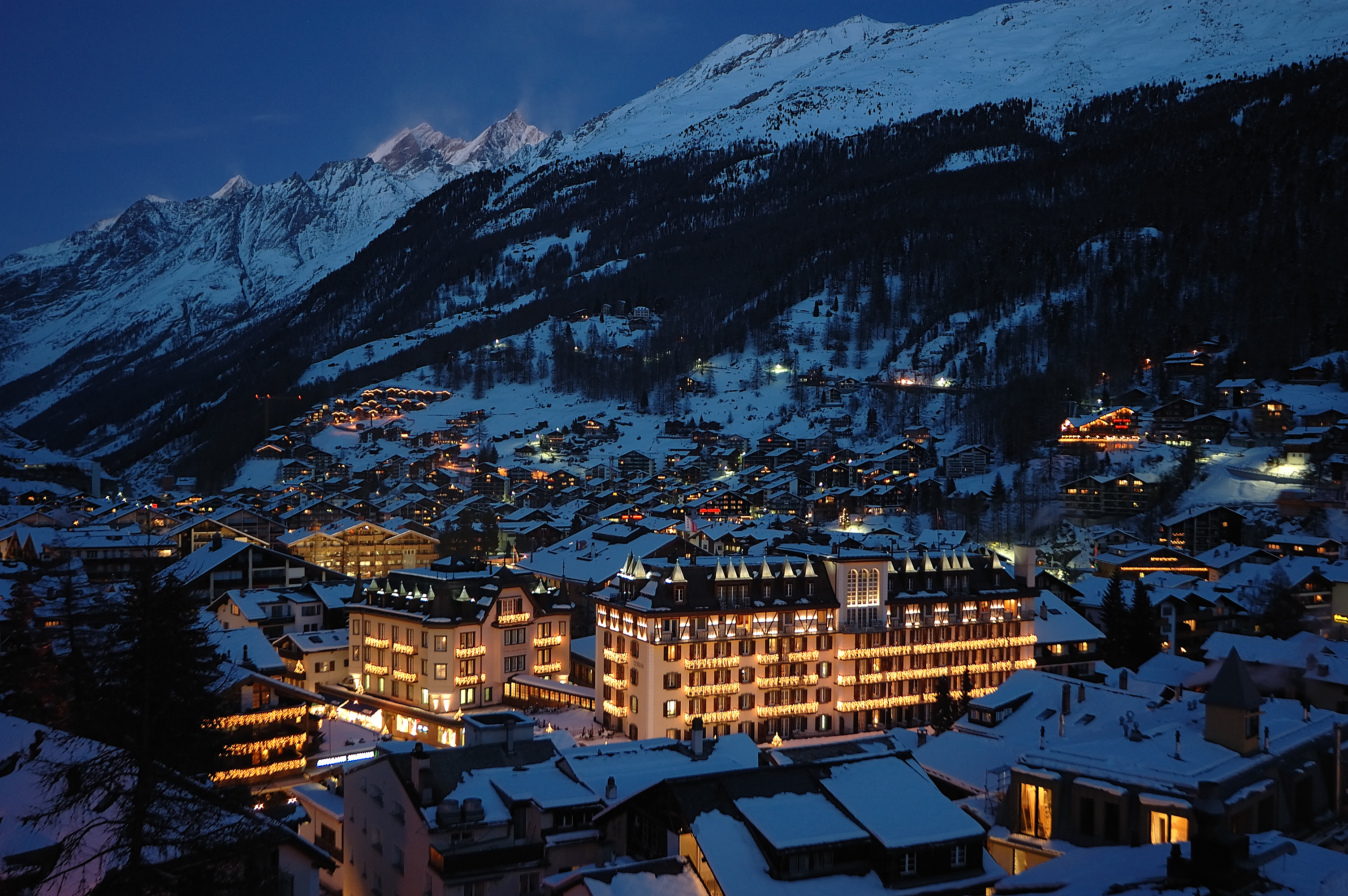|
Credit Suisse
Credit Suisse Group AG is a global investment bank and financial services firm founded and based in Switzerland. Headquartered in Zürich, it maintains offices in all major financial centers around the world and is one of the nine global " Bulge Bracket" banks providing services in investment banking, private banking, asset management, and shared services. It is known for strict bank–client confidentiality and banking secrecy. The Financial Stability Board considers it to be a global systemically important bank. Credit Suisse is also primary dealer and Forex counterparty of the Fed. Credit Suisse was founded in 1856 to fund the development of Switzerland's rail system. It issued loans that helped create Switzerland's electrical grid and the European rail system. In the 1900s, it began shifting to retail banking in response to the elevation of the middle class and competition from fellow Swiss banks UBS and Julius Bär. Credit Suisse partnered with First Bost ... [...More Info...] [...Related Items...] OR: [Wikipedia] [Google] [Baidu] |
Credit Suisse - Paradeplatz 2011-08-01 16-35-48 ShiftN
Credit (from Latin verb ''credit'', meaning "one believes") is the trust which allows one party to provide money or resources to another party wherein the second party does not reimburse the first party immediately (thereby generating a debt), but promises either to repay or return those resources (or other materials of equal value) at a later date. In other words, credit is a method of making reciprocity formal, legally enforceable, and extensible to a large group of unrelated people. The resources provided may be financial (e.g. granting a loan), or they may consist of goods or services (e.g. consumer credit). Credit encompasses any form of deferred payment. Credit is extended by a creditor, also known as a lender, to a debtor, also known as a borrower. Etymology The term "credit" was first used in English in the 1520s. The term came "from Middle French crédit (15c.) "belief, trust," from Italian credito, from Latin creditum "a loan, thing entrusted to another," from past ... [...More Info...] [...Related Items...] OR: [Wikipedia] [Google] [Baidu] |
Rail Transport In Europe
Rail transport in Europe is characterized by its diversity, both technical and infrastructural. Electrified railway networks operate at a plethora of different voltages AC and DC varying from 750 to 25,000 volts, and signaling systems vary from country to country, hindering cross-border traffic. The European Union aims to make cross-border operations easier as well as to introduce competition to national rail networks. EU member states were able to separate the provision of transport services and the management of the infrastructure by the Single European Railway Directive 2012. Usually, national railway companies were split to separate divisions or independent companies for infrastructure, passenger and freight operations. The passenger operations may be further divided to long-distance and regional services, because regional services often operate under public service obligations (which maintain services which are not economically interesting to private companies but nonethel ... [...More Info...] [...Related Items...] OR: [Wikipedia] [Google] [Baidu] |
Electrical Grid
An electrical grid is an interconnected network for electricity delivery from producers to consumers. Electrical grids vary in size and can cover whole countries or continents. It consists of:Kaplan, S. M. (2009). Smart Grid. Electrical Power Transmission: Background and Policy Issues. The Capital.Net, Government Series. Pp. 1-42. * power stations: often located near energy and away from heavily populated areas * electrical substations to step voltage up or down * electric power transmission to carry power long distances * electric power distribution to individual customers, where voltage is stepped down again to the required service voltage(s). Grids are nearly always synchronous, meaning all distribution areas operate with three phase alternating current (AC) frequencies synchronized (so that voltage swings occur at almost the same time). This allows transmission of AC power throughout the area, connecting a large number of electricity generators and consumers and poten ... [...More Info...] [...Related Items...] OR: [Wikipedia] [Google] [Baidu] |
Rail Transport In Switzerland
The Swiss rail network is noteworthy for its density, its coordination between services, its integration with other modes of transport, timeliness and a thriving domestic and trans-alp freight system. This is made necessary by strong regulations on truck transport, and is enabled by properly coordinated intermodal logistics. With network length, Switzerland has a dense railway network, and is the clear European leader in kilometres traveled: 2,505 km per inhabitant and year (2019). Worldwide only the Japanese travel more by train. Virtually 100% of its network is electrified, except for the few tracks on which steam locomotives operate for tourism purposes only. There are 74 railway companies in Switzerland. The share of commuters who travel to work using public transport (as main mode of transport) is 30%. The share of rail in goods transport performance by road and rail (modal split) is 39%. Switzerland was ranked first among national European rail systems in the 2017 Euro ... [...More Info...] [...Related Items...] OR: [Wikipedia] [Google] [Baidu] |
Federal Reserve
The Federal Reserve System (often shortened to the Federal Reserve, or simply the Fed) is the central banking system of the United States of America. It was created on December 23, 1913, with the enactment of the Federal Reserve Act, after a series of financial panics (particularly the panic of 1907) led to the desire for central control of the monetary system in order to alleviate financial crises. Over the years, events such as the Great Depression in the 1930s and the Great Recession during the 2000s have led to the expansion of the roles and responsibilities of the Federal Reserve System. Congress established three key objectives for monetary policy in the Federal Reserve Act: maximizing employment, stabilizing prices, and moderating long-term interest rates. The first two objectives are sometimes referred to as the Federal Reserve's dual mandate. Its duties have expanded over the years, and currently also include supervising and regulating banks, maintaining the stabil ... [...More Info...] [...Related Items...] OR: [Wikipedia] [Google] [Baidu] |
Forex
The foreign exchange market (Forex, FX, or currency market) is a global decentralized or over-the-counter (OTC) market for the trading of currencies. This market determines foreign exchange rates for every currency. It includes all aspects of buying, selling and exchanging currencies at current or determined prices. In terms of trading volume, it is by far the largest market in the world, followed by the credit market. The main participants in this market are the larger international banks. Financial centers around the world function as anchors of trading between a wide range of multiple types of buyers and sellers around the clock, with the exception of weekends. Since currencies are always traded in pairs, the foreign exchange market does not set a currency's absolute value but rather determines its relative value by setting the market price of one currency if paid for with another. Ex: USD 1 is worth X CAD, or CHF, or JPY, etc. The foreign exchange market works ... [...More Info...] [...Related Items...] OR: [Wikipedia] [Google] [Baidu] |
Primary Dealer
A primary dealer is a firm that buys government securities directly from a government, with the intention of reselling them to others, thus acting as a market maker of government securities. The government may regulate the behaviour and number of its primary dealers and impose conditions of entry. Some governments sell their securities only to primary dealers; some sell them to others as well. Governments that use primary dealers include Australia, Belgium, Brazil, Canada, China, France, Hong Kong, India, Italy, Japan, Singapore, Spain, the United Kingdom, Pakistan and the United States. Primary dealers in the United States In the United States, a primary dealer is a bank or securities broker-dealer that is permitted to trade directly with the Federal Reserve System ("the Fed").Federal Reserve Bank of New York: ... [...More Info...] [...Related Items...] OR: [Wikipedia] [Google] [Baidu] |
Systemically Important Financial Institution
A systemically important financial institution (SIFI) is a bank, insurance company, or other financial institution whose failure might trigger a financial crisis. They are colloquially referred to as " too big to fail". As the financial crisis of 2007–2008 unfolded, the international community moved to protect the global financial system through preventing the failure of SIFIs, or, if one does fail, limiting the adverse effects of its failure. In November 2011, the Financial Stability Board (FSB) published a list of global systemically important financial institutions (G-SIFIs). Also in November 2010, the Basel Committee on Banking Supervision (BCBS) introduced new guidance (known as Basel III) that also specifically target SIFIs. The main focus of the Basel III guidance is to increase bank capital requirements and to introduce capital surcharges for G-SIFIs. However, some economists warned in 2012 that the tighter Basel III capital regulation, which is primarily based ... [...More Info...] [...Related Items...] OR: [Wikipedia] [Google] [Baidu] |
Financial Stability Board
The Financial Stability Board (FSB) is an international body that monitors and makes recommendations about the global financial system. It was established after the G20 London summit in April 2009 as a successor to the Financial Stability Forum (FSF). The Board includes all G20 major economies, FSF members, and the European Commission. Hosted and funded by the Bank for International Settlements, the board is based in Basel, Switzerland, and is established as a not-for-profit association under Swiss law. The FSB represented the G20 leaders' first major international institutional innovation. U.S. Treasury Secretary Tim Geithner has described it as "in effect, a fourth pillar" of the architecture of global economic governance. The FSB has been assigned a number of important tasks, working alongside the International Monetary Fund, World Bank, and the World Trade Organization. Unlike most multilateral financial institutions, the FSB lacks a legal form and any formal power, gi ... [...More Info...] [...Related Items...] OR: [Wikipedia] [Google] [Baidu] |
Banking In Switzerland
Banking in Switzerland dates to the early eighteenth century through Switzerland's merchant trade and has, over the centuries, grown into a complex, regulated, and international industry. Banking is seen as emblematic of Switzerland, along with the Swiss Alps, Swiss chocolate, watchmaking and mountaineering. Switzerland has a long, kindred history of banking secrecy and client confidentiality reaching back to the early 1700s. Starting as a way to protect wealthy European banking interests, Swiss banking secrecy was codified in 1934 with the passage of the landmark federal law, the Federal Act on Banks and Savings Banks. These laws, which were used to protect assets of persons being persecuted by Nazi authorities, have also been used by people and institutions seeking to illegally evade taxes, hide assets, or generally commit financial crime. Controversial protection of foreign accounts and assets during World War II sparked a series of proposed financial regulations seeking ... [...More Info...] [...Related Items...] OR: [Wikipedia] [Google] [Baidu] |
Bank Secrecy
Banking secrecy, alternately known as financial privacy, banking discretion, or bank safety,Guex (2000), p. 240 is a conditional agreement between a bank and its clients that all foregoing activities remain secure, confidential, and private. Most often associated with banking in Switzerland, banking secrecy is prevalent in Luxembourg, Monaco, Hong Kong, Singapore, Ireland, and Lebanon, among other off-shore banking institutions. Otherwise known as bank–client confidentiality or banker–client privilege, the practice was started by Italian merchants during the 1600s near Northern Italy (a region that would become the Italian-speaking region of Switzerland). Geneva bankers established secrecy socially and through civil law in the French-speaking region during the 1700s. Swiss banking secrecy was first codified with the Banking Act of 1934, thus making it a crime to disclose client information to third parties without a client's consent. The law, coupled with a stable Sw ... [...More Info...] [...Related Items...] OR: [Wikipedia] [Google] [Baidu] |






